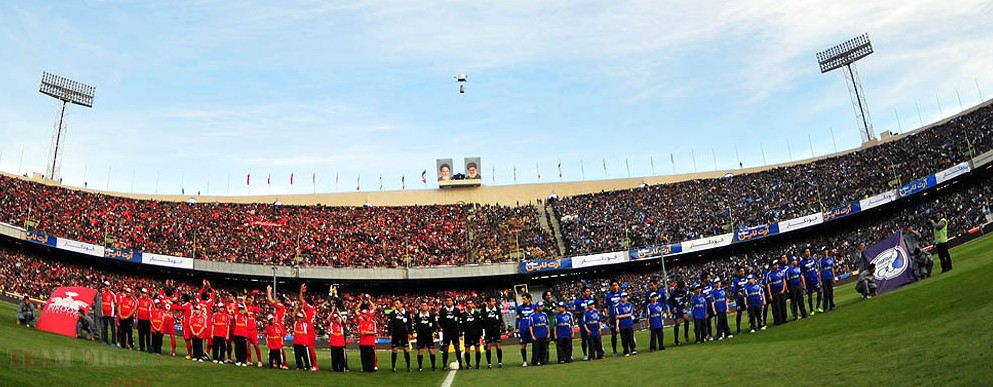After the failure of the government to find buyers for the two major Iranian clubs, Persepolis and Esteghlal, Seyed Jafar Sobhani, the advisor to the head of the privatization committee of the government warned of the possibility of liquidating both clubs!.
The privatization of Persepolis and Esteghlal has been talked about for decades since Hashemi Rafsanjani’s era. Subsequent governments, due to political reasons, were reluctant to make any serious attempt to release and privatize the clubs. Despite public claims that privatization was to go ahead pending administration and financial issues, each government found some reason not to carry any meaningful work. Nearly 15 years later since the first talk of Persepolis and Esteghlal being handed to private investors or the public, the current government made the most genuine attempt so far to finally offload these two poorly run and financially bankrupt entities from the books of the government.
Forced by economic hardship after the remarkable drop of oil revenue, the government flouted the political reservations of the privatization issues and fast tracked attempts to attract potential investors.
The Ministry of Finance announced the price for the two clubs in a bid to attract investors, but no one came forward to the great disappointment of the government. A number of reasons were behind the lack of any interest by investors to acquire the clubs. The initial price were set quite high according to many potential investors, however , the most pressing issue remains the outstanding debts, especially by Persepolis whose CEO is in jail due to financial irregularities , and whether the government is willing to release both clubs debt free. The details are still sketchy on the issue although some officials have been quoted that the government will indeed work towards clearing most of the debts, believed to be in millions of US dollars.
Some Persepolis ex-footballers formed a group which demanded that the government should hand the clubs to them for free, to manage and run it just because a few decades ago, they used to play for the team and are fans for life!
To sweeten the deal further, Seyed Jafar Sobhani , the Adviser declared that the government is prepared to offer credit facilities to the buyer and extend the payment period of the deal from 2 years to 4 years from the date of the purchase while lowering the initial payment to 20% of the total price which remains unchanged.
“Legally, these two clubs have a license to operate until 21st July 2015. The government is not willing to continue operating and running the clubs, so if buyers cannot be found beyond that date, both clubs will go into liquidation. This is nothing new and we have faced this situation before.” Sobhani added.
In private, most of the potential buyers of Persepolis and Esteghlal fear that the government will not truly wipe its hands off the two clubs even after privatization. It will continue meddling and interfering to ensure compliance with the party line. As such , the authorities can always make it difficult for the clubs to be survive and run independently of the government guidelines. Other financiers’ claims that neither of the clubs are commercially sound investments even after the clearing of the debts by the government. The running expenditure, especially the contract and wages of the playing staff and coaches, far exceed the actual and forecasted revenues. Unless there is a wholesale clearance and contract re-negotiations at much lower rates, it is impossible to balance the books at both clubs. Failure of marketing personnel of both clubs, which was limited to shirts sponsorship deals, have prevented a sizable revenue for the clubs and instead the two clubs administrations built a dependency on government handouts, which was much easier task.
The TV revenue that many investors have been looking at as a potential attraction remains on the balance after the talk failures between FFIRI and the IRIB. The two sides continue to disagree on the terms with each accusing the other of hindering the closing of a deal.

